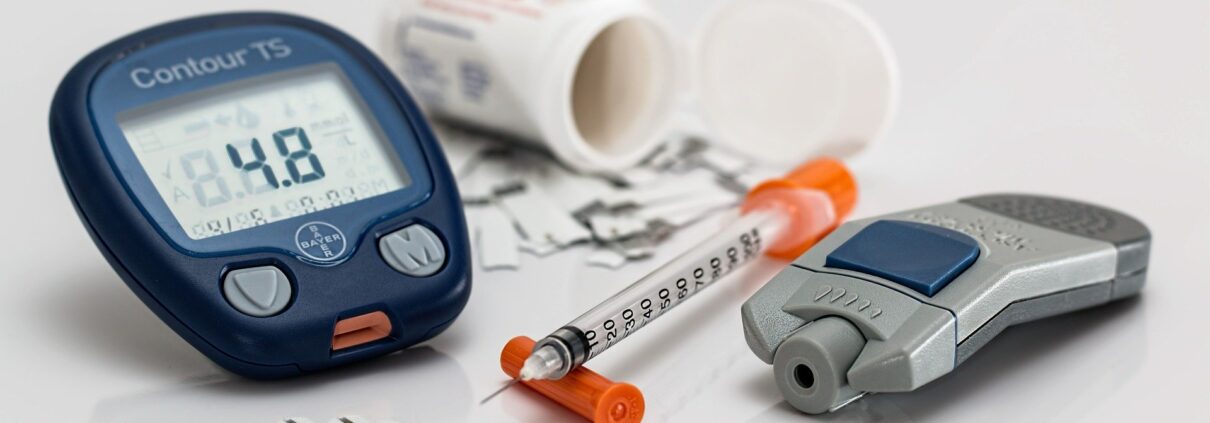Dental Health and Diabetes
The key to overall health lies largely in your mouth. The emphasis that dentists and doctors place on good dental hygiene is not only for the sake of your teeth, gums, and appearance, but also for the health of your entire body. A healthy mouth looks great and makes everyday tasks like eating, talking, and smiling a breeze, but the mouth is also a direct passageway into the rest of your body. If bacteria builds up in the mouth, it can easily make its way into the bloodstream, the digestive tract, and the respiratory tract, which can be dangerous.
This connection works both ways—meaning that keeping your body healthy is also important for the health of your mouth. A perfect example of the mouth-body connection is the relationship between oral health and diabetes. According to the National Diabetes Information Clearinghouse (NDIC), diabetes raises your risk of gum disease, and having gum disease raises your risk of complications with diabetes. The reason behind this correlation comes down to blood sugar. Both gum disease and diabetes impact your blood sugar levels and having one or the other can make those levels hard to control.
When your blood sugar levels are high, the amount of sugar in your saliva is also high, which makes a perfect breeding ground for plaque to grow. As plaque builds up, the risk of infection, cavities, and decay increases. Knowing this, patients with diabetes should be especially conscientious about removing plaque twice a day by brushing to prevent oral infection.
Failing to take good care of your teeth can cause cavities, gum disease, periodontitis, and more—especially if you have high blood sugar. As you eat, the starches and sugars in foods and beverages interact with bacteria that naturally grows in the mouth to form plaque. Those with diabetes have a lower ability to resist infection and aren’t able to fight bacteria in the same way someone without diabetes would. This puts them at greater risk for diseases like gingivitis.
Gingivitis, or swelling of the gums, occurs when plaque, tartar, and bacteria build up and harden on the gumline and cause the gums around the base of the teeth to swell. Another disease that those with diabetes are especially susceptible to is periodontitis, which can appear if gingivitis goes untreated. Periodontitis destroys the soft tissue and bone that support your teeth, which can lead to the loosening or loss of teeth, even if the teeth themselves are healthy.
Tooth and gum disease are not the only oral health issues that patients with diabetes might face, especially without proper treatment. According to the American Diabetes Association, diabetics are more likely to suffer from dry mouth, or xerostomia, which allows bacteria and plaque to cling onto teeth for longer without getting washed away by normal amounts of saliva.
Another possible result of poor oral hygiene in patients with diabetes is thrush—a fungal infection caused by the yeast “Candida albicans.” Thrush causes painful white or red patches inside your mouth, but can be prevented by practicing good oral hygiene.
Brushing twice a day, flossing, and monitoring your blood sugar levels as recommended by your doctor work hand in hand to keep you healthy. By controlling blood sugar, patients with diabetes are taking an important step in sidestepping gingivitis and other dental problems.
The most important step in the maintenance of diabetes and oral health is the patient making sure his or her dentist knows that they have diabetes. If you have diabetes, be sure to remind us when you visit, and confirm that we have the current contact information for the doctor who helps you manage your diabetes.
In every mouth, especially those of someone with diabetes, you should be on the lookout for early signs of gum disease. Those signs include redness, swelling or bleeding gums, dry mouth, loose teeth, or mouth pain. Let us keep an eye on the window to your body by coming in for regular checkups and cleanings. Need to schedule an appointment? Give us a call now at 408.227.1404.



